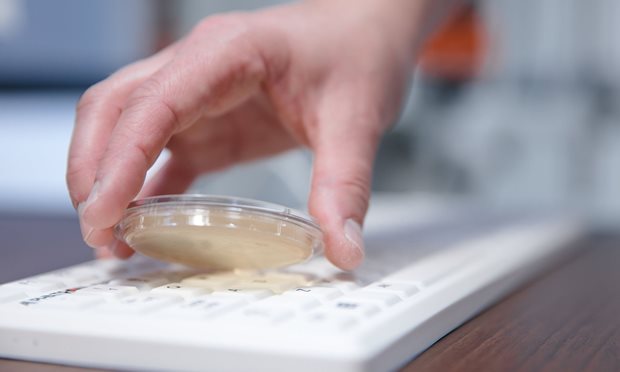The Hygiene and Infection Prevention team (HIP) advises healthcare departments in our hospital about preventing infections. This is important because the patients at Radboud university medical center have (temporarily) reduced immune resistance. They are susceptible to infection.


What does the HIP do for patients?
The HIP does everything it can to ensure that you do not acquire an infection. We do this from the second you arrive at our hospital, right up until the moment you leave. read moreHow to prevent infections?
We do everything we can to ensure that you do not acquire an infection. However, we cannot always prevent this at the hospital. What can you do from your end in order to minimize the risk of infection? read moreHow to prevent infections?
We do everything we can to ensure that you do not acquire an infection. However, we cannot always prevent this at the hospital. What can you do from your end in order to minimize the risk of infection?
What is an infection?
Infections are cause by microorganisms. Microorganism is a blanket term that includes bacteria, viruses, and mold. Every person carries billions of microorganisms on their bodies, primarily bacteria. Certain microorganisms can make you sick. If you are healthy, you have enough immune resistance to fight them. However, if your immune resistance is weakened, your body can no longer protect you against the pathogen as well. If you are admitted to a hospital, you may well have a weakened immune resistance. This can occur due to an operation or treatment, or simply because you are sick. An infection can occur. Signals of infection are redness, swelling, fever, and pain.What can you do prevent infections from your end?
- Regularly wash your hands, e.g. after using the toilet.
- Use proper hygiene when coughing: cough into a paper tissue, throw the tissue away, and disinfect your hands afterwards.
- When leaving the room, always disinfect your hands.
- Do not touch wounds, IVs, or catheters with your hands.
- Follow any additional precautionary measures that apply to you closely.
- Have your visitor discuss with the caretakers whether it is reasonable for them to visit you.
- Visitors can also cause infections, e.g. if they have a cold or infection.
What if you have an infection before you arrive at the hospital?
- If you suspect that you have an infection, notify the hospital, preferably by telephone. Examples of these kinds of illnesses and infection symptoms are stomach flu with diarrhea, a sore throat, or chicken pox.
- Inform us if you work with live pigs, cattle or chickens for slaughter, or if you have recently been treated at a foreign hospital. If so, you will have an increased risk of carrying the MRSA bacteria. We can then take appropriate action.
HIP team Hygiene and infection prevention
The Hygiene and Infection Prevention team (HIP) advises healthcare departments in our hospital about preventing infections. The HIP is a part of the Medical Microbiology department. read moreHIP team Hygiene and infection prevention
The Hygiene and Infection Prevention team (HIP) advises healthcare departments in our hospital about preventing infections. The HIP is a part of the Medical Microbiology department. The team consists of:- 7 infection prevention experts
- 2 infection prevention experts in training
- 1 infection prevention assistant
- 1 medical microbiologist
The HIP works closely together with the Medical Microbiology laboratory. This allows us to make quick diagnoses and to discover potential infection risks in our hospital at an early stage.
We operate according to national guidelines and provide care in such a way that the infection prevention policy at Radboud university medical center is as up-to-date as possible.